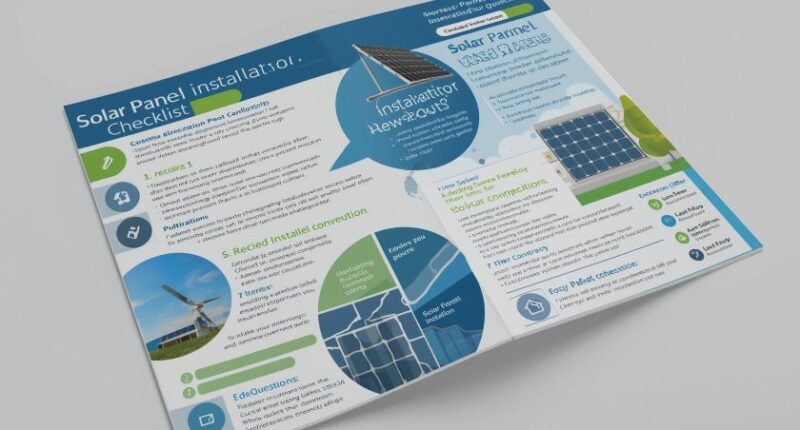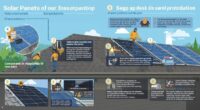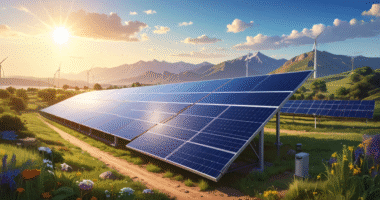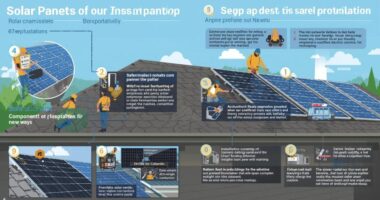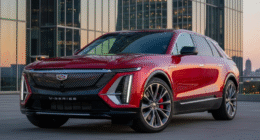Switching to solar energy is one of the most impactful ways homeowners can reduce electricity bills and embrace sustainable living. However, installing solar panels requires careful planning, research, and consideration. To make the process smooth and cost-effective, it’s essential to ask the right questions before signing any contracts or committing to an installer.
In this article, we’ll provide a comprehensive solar panel installation checklist and highlight six key questions every homeowner should ask in 2025 to ensure the best results.
Why Asking Questions Before Installing Solar Panels Matters
Installing solar panels is a long-term investment. Panels typically last 25–30 years, and the system’s efficiency depends on proper installation and maintenance. Asking the right questions helps you:
- Avoid overpaying for equipment or installation.
- Choose the right system for your energy needs.
- Ensure compliance with local regulations and incentives.
- Maximize long-term savings and ROI.
Question 1: What Size System Do I Need?
Determining the correct solar system size is critical. Too small, and it won’t meet your energy needs. Too large, and you may overspend unnecessarily.
How to Calculate Your System Size
- Review your electricity bills for the past year.
- Estimate your average monthly and annual usage in kilowatt-hours (kWh).
- Factor in future energy needs, like adding an electric vehicle or heat pump.
Most installers will help you calculate your system size, but asking this question ensures you receive a customized solution rather than a standard package.
Question 2: What Type of Solar Panels Should I Choose?
Solar panels come in monocrystalline, polycrystalline, and thin-film types. Each has advantages and disadvantages:
| Panel Type | Efficiency | Cost | Lifespan | Best For |
|---|---|---|---|---|
| Monocrystalline | 20–23% | Higher | 25–30 years | Limited roof space, high efficiency |
| Polycrystalline | 15–17% | Moderate | 20–25 years | Large roof areas, budget-conscious |
| Thin-Film | 10–12% | Lower | 10–15 years | Flexible applications, low-cost solutions |
Asking this question ensures you choose panels suited to your budget, roof space, and energy goals.
Question 3: What Incentives and Rebates Are Available?
Government programs, local utilities, and even federal tax credits can significantly reduce the upfront cost of solar installations.
Key Incentives to Ask About:
- Federal Investment Tax Credit (ITC) – Offers a percentage off your total system cost.
- State and local rebates – Vary by region.
- Net metering programs – Allow you to sell excess electricity back to the grid.
- Low-interest solar loans or financing options – Reduce the burden of upfront investment.
In 2025, staying informed about incentives is more important than ever, as many programs have expiration dates or changing eligibility criteria.
Question 4: What Is the Warranty on Panels and Installation?
Solar panels are a long-term investment, so warranties are crucial.
What to Look For:
- Panel warranty – Typically 25 years, covering performance and defects.
- Inverter warranty – Usually 5–12 years; inverters may need replacement sooner.
- Installation warranty – Covers workmanship issues.
Asking this question protects you from unexpected costs and ensures your investment is secure for decades.
Question 5: How Will My Roof Affect Installation?
Your roof’s condition, orientation, and shading can impact solar efficiency. Questions to consider include:
- Roof age and durability – Will it need repairs before installation?
- Roof orientation – South-facing roofs capture maximum sunlight in the northern hemisphere.
- Shading – Trees, chimneys, or neighboring buildings can reduce panel output.
- Roof material – Some materials like metal or tile may require special mounting hardware.
A reputable installer will perform a site assessment and provide recommendations based on your roof’s characteristics.
Question 6: What Are the Maintenance Requirements?
While solar panels require minimal upkeep, understanding maintenance is important for long-term performance.
Maintenance Considerations:
- Cleaning frequency – Dust, pollen, and debris can reduce efficiency.
- Monitoring system performance – Many systems provide apps or dashboards.
- Warranty and service support – Ensure quick repairs if panels or inverters fail.
- Snow or leaf removal – In some regions, seasonal maintenance may be required.
Asking this question ensures you are prepared to keep your system running at peak efficiency.
Additional Tips for Solar Panel Installation in 2025
- Get Multiple Quotes – Compare costs, equipment, and warranties from different installers.
- Check Installer Credentials – Look for certifications like NABCEP and verified reviews.
- Consider Financing Options – Solar leases, PPA (power purchase agreements), or loans can make installations more affordable.
- Understand Energy Storage – Pairing solar with batteries can provide backup power and maximize savings.
- Monitor Government Policy Updates – Incentives and tax credits may change; staying informed is critical.
Conclusion
Installing solar panels is a major investment, but asking the right questions ensures it’s a wise and profitable decision. By considering system size, panel type, incentives, warranties, roof suitability, and maintenance requirements, homeowners can make informed choices that maximize energy savings and environmental benefits.
The six key questions to ask before installing solar panels in 2025 are:
- What size system do I need?
- What type of solar panels should I choose?
- What incentives and rebates are available?
- What is the warranty on panels and installation?
- How will my roof affect installation?
- What are the maintenance requirements?
Following this checklist empowers homeowners to confidently transition to renewable energy while saving money and supporting sustainability.
